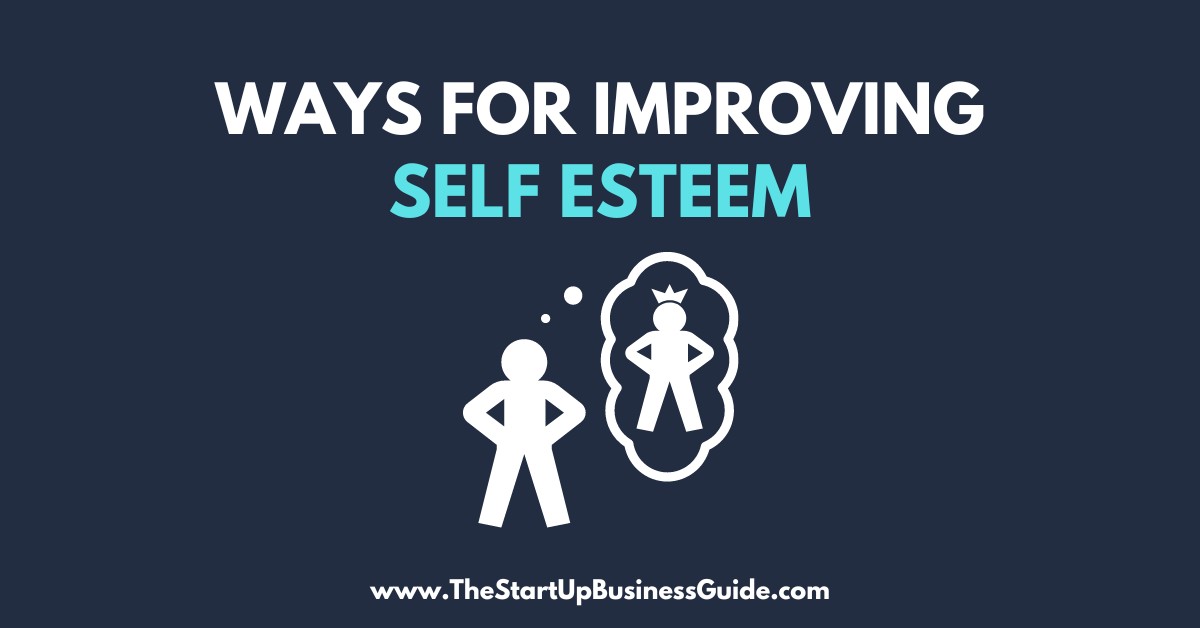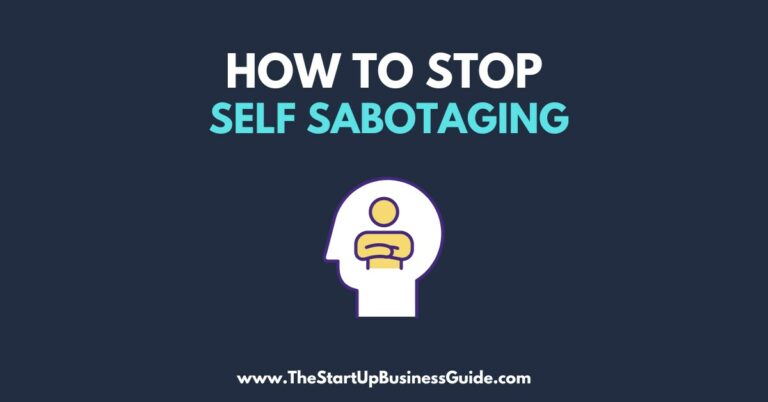13 Effective Ways for Improving Self-Esteem

Self-esteem is the way we feel about ourselves and our abilities.
It is an important aspect of our overall well-being, as it affects how we think, feel, and behave.
Having a healthy self-esteem means that we have a positive view of ourselves and believe that we are capable of achieving our goals and living a fulfilling life.
However, many people struggle with low self-esteem, which can be caused by a variety of factors such as negative experiences, past trauma, or societal messages.
Low self-esteem can lead to a host of problems, including depression, anxiety, and difficulty forming healthy relationships.
In this blog post, we will discuss 13 effective ways for improving self-esteem.
By implementing these strategies, you can learn to appreciate and value yourself, build confidence, and live a happier, more fulfilling life.
1. Identify and Challenge Negative Thoughts
One of the most powerful ways to improve self-esteem is to identify and challenge negative thoughts.
Negative thoughts can be incredibly damaging, as they can lead us to doubt ourselves and our abilities.
These thoughts can be automatic, and we may not even be aware of them.
To begin identifying negative thoughts, pay attention to the way you talk to yourself.
Are you constantly criticizing yourself? Do you often say things like “I can’t do this,” or “I’m not good enough”? These are examples of negative thoughts.
Once you have identified these negative thoughts, it is important to challenge them.
Ask yourself if the thought is really true. Are there any facts that contradict the thought?
Is there another way to look at the situation?
By challenging these negative thoughts, you can begin to replace them with more positive, realistic thoughts.
2. Practice Self-Care
Self-care is another important aspect of improving self-esteem.
When we take care of ourselves, we are showing ourselves that we are worth the effort.
Self-care can include activities such as exercise, healthy eating, and getting enough sleep.
Exercise is a great way to improve self-esteem, as it releases endorphins, which are chemicals in the brain that make us feel good.
Regular exercise can also help us to feel better about our bodies and improve our overall health.
Eating a healthy diet is also important for self-esteem.
When we nourish our bodies with nutritious foods, we feel better physically and mentally.
Getting enough sleep is also crucial for self-esteem.
When we are well-rested, we are more able to think clearly and make good decisions.
3. Set and Achieve Goals
Setting and achieving goals is another important aspect of improving self-esteem.
When we set goals and work towards them, we are showing ourselves that we are capable of achieving things.
It is important to set realistic and achievable goals.
Start with small goals that are easy to accomplish, and work your way up to bigger goals.
To stay motivated and on track, it can be helpful to break big goals down into smaller steps.
This way, you can focus on one step at a time and not get overwhelmed.
4. Surround Yourself with Positive People
The people we surround ourselves with can have a big impact on our self-esteem.
Positive people can help to lift us up and support us, while negative people can bring us down.
It is important to identify and build positive relationships with people who support and encourage us.
These people can be friends, family members, or even strangers.
When dealing with negative or toxic people, it is important to set boundaries.
This means communicating your needs and standing up for yourself. If necessary, it may be best to distance yourself from these individuals in order to protect your well-being.
5. Learn to Accept Compliments and Positive Feedback
Many people struggle with accepting compliments and positive feedback, but learning to do so is important for building self-esteem.
Common reasons for this struggle include feelings of inadequacy or self-doubt.
To overcome this, it is important to recognize that compliments and positive feedback are not a reflection of your worth as a person, but rather a reflection of the other person’s perception of you.
When receiving a compliment, try to simply say “thank you” and let it sink in. Don’t dismiss it or try to downplay it.
And when receiving positive feedback, take it as an opportunity to learn and grow.
6. Practice Positive Self-Talk
The way we talk to ourselves can have a big impact on our self-esteem.
Negative self-talk patterns, such as using words like “never” or “always” or using the word “should” can be detrimental to our self-esteem.
To improve self-esteem, it’s important to practice positive self-talk.
This means speaking kindly and positively to yourself, focusing on your strengths and accomplishments, and reminding yourself of your worth and value.
One technique to develop positive self-talk is to write down positive affirmations and repeat them to yourself regularly.
Another technique is to focus on the present moment and practice mindfulness.
7. Take Responsibility for Your Actions
Taking responsibility for our actions is important for improving self-esteem.
This means acknowledging and owning our mistakes, rather than blaming others or making excuses.
When taking responsibility, it’s important to avoid criticizing or blaming ourselves. Instead, focus on the steps you can take to make amends and move forward.
Taking responsibility also means setting boundaries, and standing up for yourself.
This includes saying no when you need to, and advocating for yourself.
8. Learn to Forgive Yourself and Others
Forgiveness is an important aspect of self-esteem. Holding grudges and resentment can weigh us down and negatively impact our self-worth.
Forgiving ourselves means letting go of guilt and shame and learning to be kind and compassionate towards ourselves.
Forgiving others means letting go of anger and resentment and finding a way to move on.
One technique for practicing self-forgiveness is to write a letter to yourself, acknowledging your mistakes and expressing compassion and understanding towards yourself.
9. Find Your Passion and Purpose
Having a sense of purpose and passion in life is important for self-esteem.
When we are living a life that aligns with our values and interests, we feel fulfilled and satisfied.
To find your passion and purpose, take the time to explore your interests and values.
This can be done through journaling, meditating, or even taking a personality test.
Once you have identified your passions and purpose, it is important to take action and turn them into reality.
This might mean taking a class, joining a group, or volunteering in the community.
10. Learn to Set and Enforce Boundaries
Setting and enforcing boundaries is important for self-esteem.
Boundaries are the limits we set for ourselves and others in terms of how we want to be treated.
To set boundaries, it is important to be clear and direct in communicating our needs and desires.
This includes saying no when we need to and standing up for ourselves.
Enforcing boundaries also means setting consequences for when they are not respected. This can be done in a firm but respectful manner.
11. Take Risks and Try New Things
Stepping out of our comfort zone and taking risks can have a positive impact on self-esteem.
When we try new things, we are showing ourselves that we are capable of growth and change.
To take risks, it’s important to overcome fear and anxiety.
This can be done by setting small, manageable goals, and working your way up to bigger challenges.
It can also be helpful to find a support system, whether it’s friends, family, or a therapist.
They can provide encouragement and guidance as you step out of your comfort zone.
12. Help Others
Helping others can have a positive impact on self-esteem.
When we make a difference in someone else’s life, we feel a sense of purpose and fulfillment.
There are many ways to help others, such as volunteering in the community, donating to charity, or even just lending a listening ear to a friend in need.
By helping others, we also learn to appreciate our own abilities and strengths.
It also helps us to focus on something other than our own problems and challenges.
13. Practice Gratitude
Practicing gratitude is an important aspect of self-esteem.
When we focus on the things we are grateful for, we are able to appreciate what we have and not take it for granted.
To practice gratitude, it’s important to take the time to reflect on the things we are thankful for.
This can be done through journaling, meditating, or even just saying a simple thank you.
Expressing gratitude also means taking the time to acknowledge and appreciate the contributions of others.
This can be done through thank-you notes, or even just verbalizing appreciation.
Conclusion
In conclusion, self-esteem is an important aspect of overall well-being and affects how we think, feel and behave.
Improving self-esteem takes time and effort, but the benefits are worth it.






